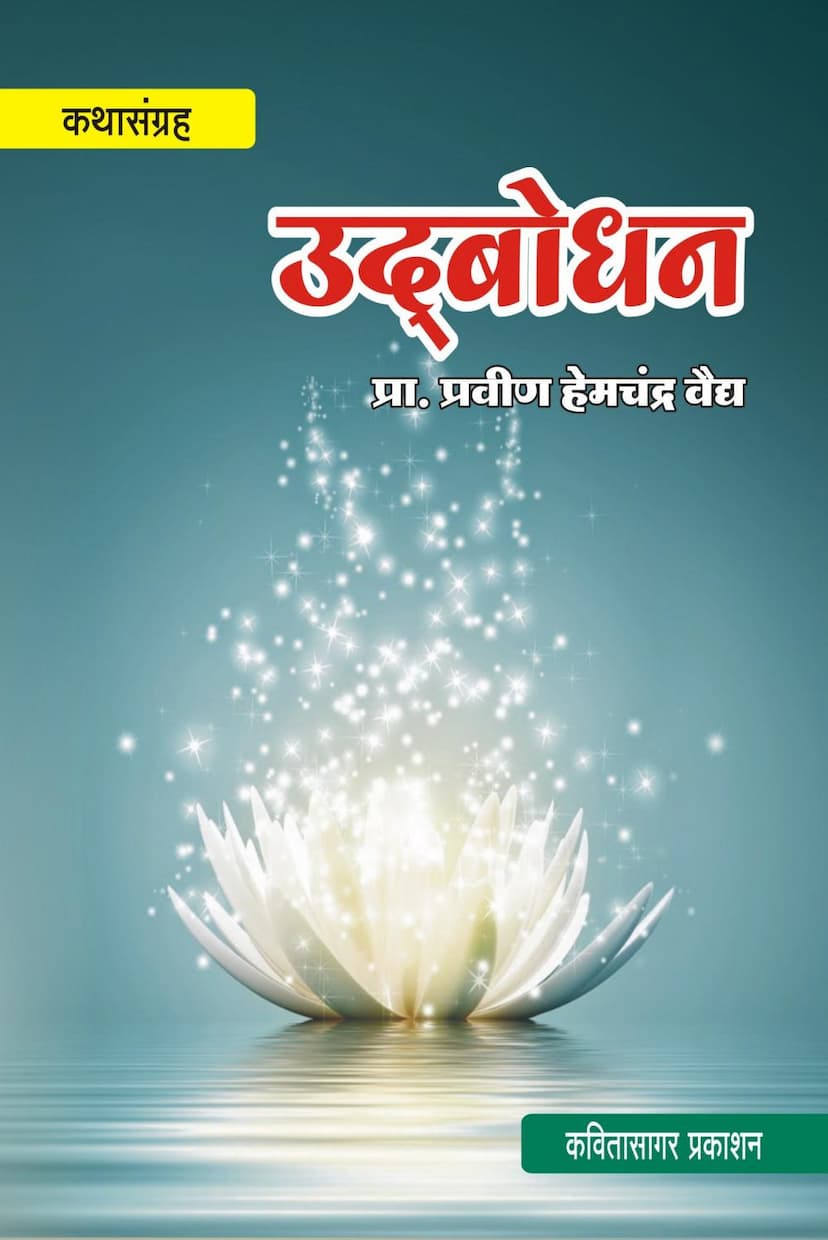Udbodhan
Added to library: September 2, 2025

Summary
"Udbodhan" (उद्बोधन), authored by Prof. Pravin Hemchandra Vaidya and published by Kavitasagar Prakashan, is a collection of seventeen Marathi short stories. The book, released on July 16, 2016, aims to provide readers with thought-provoking and engaging narratives.
The author, a retired educator, has dedicated this work to his father, Dr. Hemchandra Vaidya, who was also a writer. Prof. Vaidya expresses his joy and gratitude for the opportunity to publish his first book after retirement, attributing its realization to the support and encouragement of his family, publisher Dr. Sunil Dada Patil and his wife, esteemed critics, and well-wishers.
The collection is praised for its well-crafted stories, each possessing a strong narrative core. The stories delve into various themes, including:
- Faith (Shraddha): Exploring the importance of unwavering faith and how it protects individuals in times of crisis, as exemplified by the story of a kirtankar (religious preacher) facing a flood.
- Brain Tonic: A humorous tale about a woodcutter who, after receiving magical axes from a god, later asks for a "brain tonic" from God, highlighting the irony of human desires.
- Renunciation (Sanyas): Examining the complexities and challenges of adopting a renunciate life, particularly the difficulty in shedding worldly desires and temperaments.
- Two Scholars (Vidwanadvay): Depicting the animosity and backbiting between two learned individuals, showcasing how intellectual prowess doesn't always equate to virtuous conduct.
- Dream (Swapna): A story about a wife who is disturbed by a prophetic dream of her husband's death, leading to emotional distress.
- Excess of Propriety (Auchityacha Atirek): A narrative about a wealthy man who dies after his horse, weakened by the task of transporting his ailing wife, perishes.
- Accurate Solution (Achuk Upay): This story appears to be about a patient's journey through various medical treatments in search of a cure, hinting at the effectiveness of a specific approach.
- Spiritual Master (Adhyatmapandit): A story that contrasts the outward preaching of a spiritual master with his private indulgence in forbidden foods, exposing hypocrisy.
- Sin of Past Birth (Gatjanmache Paap): This story delves into the concept of karma and how actions from past lives influence present circumstances, as illustrated through the lives of a priest and the divine couple Vishnu and Lakshmi.
- Supreme Happiness (Paramasukha): A tale about King Shrenik and his minister Abhaykumar, where the minister educates the king and his courtiers about the principles of Ahimsa (non-violence) by highlighting the hypocrisy of meat-eaters.
- Defeated (Parabhut): Using the fable of the fox and the sour grapes, this story critiques the human tendency to hide failure and defeat behind excuses and clever words.
- Word Meaning (Shabdarth): A story where a scholar attempts to challenge a Jain Acharya, only to be humbled and made to understand the profound meaning of simple words like "So'ham" and the importance of inner realization.
- Remover of Sorrows, Giver of Happiness (Dukha Harta, Sukha Karta Majha Mi): This story reflects on self-reliance and the fact that one is the architect of their own destiny, using an industrialist's aging and eventual blindness as an example.
- Good Intellect (Sumati): This story emphasizes that our character and appearance are reflections of our inner thoughts and intentions, contrasting a virtuous man with a corrupted one.
- Taste/Preference (Abhiruchi): Through an encounter between Narad Muni and a pig, this story illustrates that different beings have vastly different ideas of happiness and contentment, and what is paradise for one can be hell for another.
- Introduction (Parichay): A story where Lord Rama observes a heron, mistaking its careful movements for religious piety. However, a fish reveals that the heron's caution is due to self-preservation (avoiding mud and entanglement) and its predation on fish.
- One and a Quarter Seers (Savva Sher): This story highlights the dangers of ego and pride, using the example of a proud Brahmin scholar who is humbled by the immense appetite of a farmer.
Overall, "Udbodhan" is a collection that uses relatable characters and situations to convey moral and spiritual lessons, encouraging readers to reflect on their own lives and choices. The stories are written in simple yet effective Marathi, making them accessible to a wide audience.